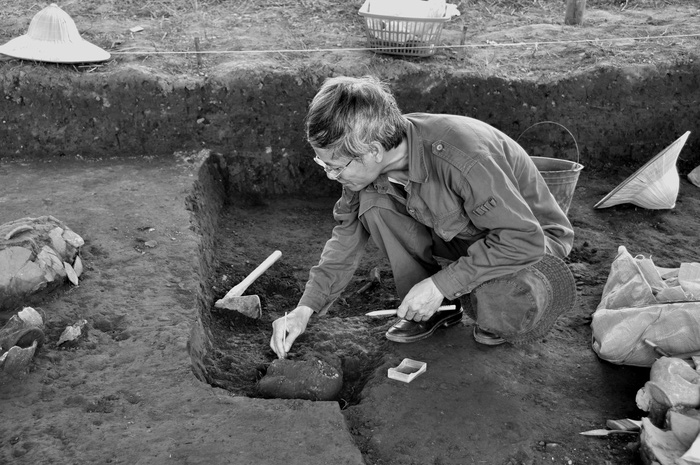Vietnamese archeologists are calling on the public to help save Hanoi’s Vuon Chuoi archeological site – the area believed to be the city’s first human settlement – in the face of a government decision to allow a new development to be built on the land.
Located in Kim Chung Commune in Hoai Duc District, the 3,500-year-old Vuon Chuoi site is believed to have been the first settlement in Hanoi, proving a deep and lasting connection between the Vietnamese people and their capital.
“Such evidence is extremely rare for any capital city in the world,” said Dr. Nguyen Van Huy, former director of the Vietnam Museum of Ethnology in Hanoi.
“The site also proves the native origin of the Vietnamese people and outlines their history during the prehistoric and protohistoric periods.”
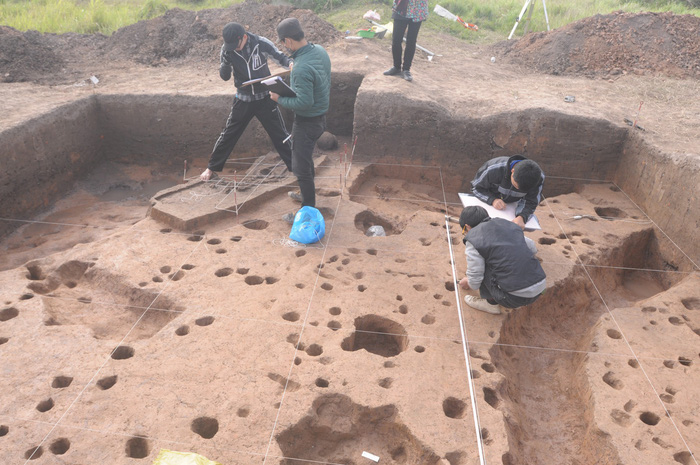 |
| Archeological excavation at the Vuon Chuoi archeological site in Hanoi. Courtesy of Dr. Nguyen Van Huy |
Dr. Huy submitted a heartfelt letter on Monday to Hanoi Party chief Hoang Trung Hai and chairman Nguyen Duc Chung calling for the conservation of the threatened archeological site.
“Vuon Chuoi was first discovered in 1969 and has since undergone eight excavations,” Huy wrote in his letter. “Yet the site is still not officially listed as a conservation area by the municipal Management Authority of Relics and Attractions.”
Lacking conservation status has allowed the entirety of the 19,000-square-meter site to be included in a new urban area project slated to break ground in 2018, Huy wrote.
“Without due action from authorities to protect this archeological site and its significance to Hanoi, Vuon Chuoi and other nearby sites will soon be wiped from existence,” Huy warned.
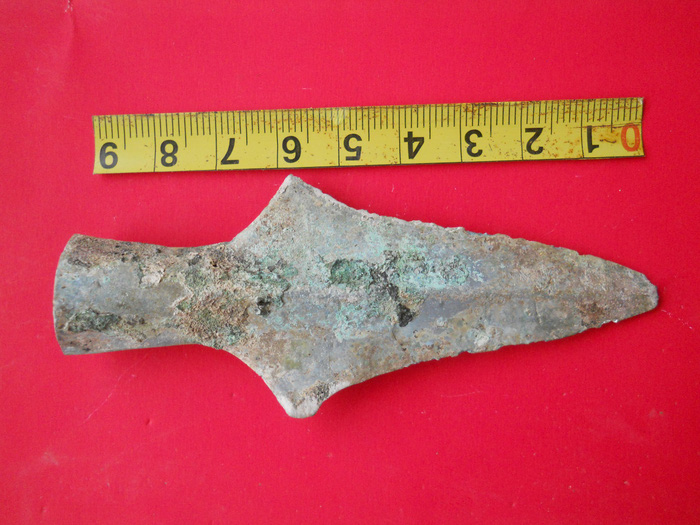 |
| An artifact unearthed from the Vuon Chuoi archeological site in Hanoi. Courtesy of Dr. Nguyen Van Huy |
Vuon Chuoi is a complex of numerous smaller archeological areas that reflect a 2,200-year period of human settlement in Hanoi, beginning about 4,000 years ago and ending about 1,800 years back.
Different areas of the complex represent several of Hanoi’s diverse cultural periods, including the Dong Dau (1,500-1,000 BC), Go Mun (1,000-600 BC), and Dong Son (700 BC-100) periods.
Over the course of eight excavations, archeologists have discovered 29 prehistoric tombs, nearly 150,000 pieces of pottery, 50 pottery artifacts, over 200 bronze artifacts, 11 iron artifacts, and 1,000 wooden artifacts.
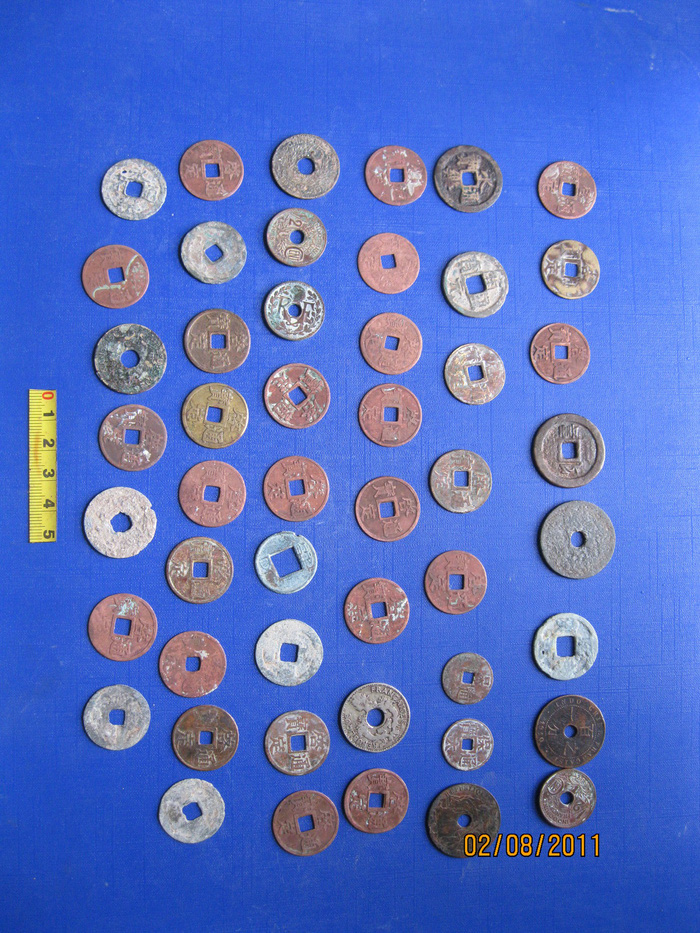 |
| Ancient Vietnamese coins unearthed from the Vuon Chuoi archeological site in Hanoi. Courtesy of Dr. Nguyen Van Huy |
Officials from Hanoi’s Department of Culture and Sports on Tuesday chose to inspect Vuon Chuoi after receiving Huy’s letter, though the department preferred not to reverse the decision to bulldoze the site.
“The Vuon Chuoi archeological site must be included in Hanoi’s overall archeological planning if it is to be listed for conservation. So far we have no draft of such a plan,” said Truong Minh Tien, deputy director of the municipal Department of Culture and Sports.
“It’s very difficult to reverse the decision of the former Ha Tay Province [which was subsumed into Hanoi in 2008] administration’s decision to approve the land for development,” Tien explained.
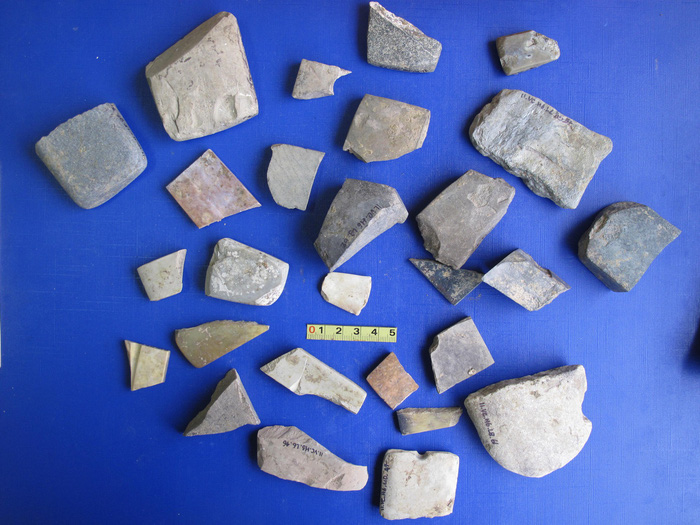 |
| Artifacts unearthed from the Vuon Chuoi archeological site in Hanoi. Courtesy of Dr. Nguyen Van Huy |
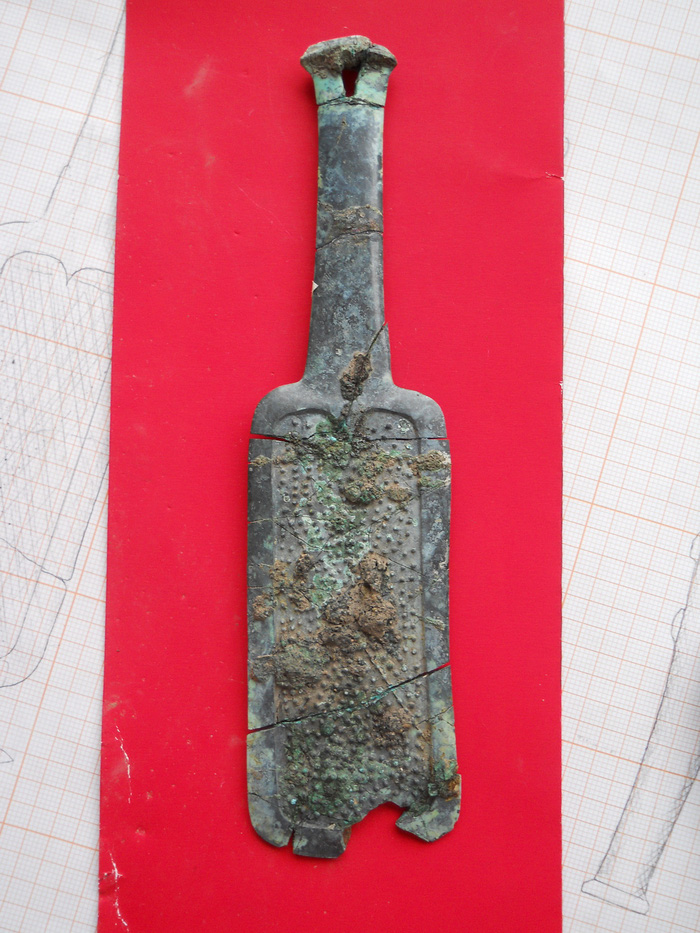 |
| An artifact unearthed from the Vuon Chuoi archeological site in Hanoi. Courtesy of Dr. Nguyen Van Huy |
Like us on Facebook or follow us on Twitter to get the latest news about Vietnam!



